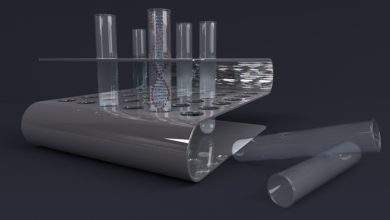
In today’s fast-paced industrial environment, safeguarding sensitive and critical equipment is paramount. Industrial operations rely heavily on machinery, control systems, and electrical equipment to function efficiently. To ensure their optimal performance and longevity, protecting these assets from environmental hazards, physical damage, and unauthorized access is crucial. Industrial Equipment Protection Enclosures provide the perfect solution to meet these challenges, offering reliability, durability, and peace of mind.
What Are Industrial Equipment Protection Enclosures?
Industrial equipment protection enclosures are robust, purpose-built cabinets or housings designed to shield equipment from various threats. These enclosures serve as a barrier between the equipment and potentially harmful factors, ensuring operational safety and efficiency. Their applications span multiple industries, making them indispensable for industrial infrastructure.
The Importance of Equipment Protection
Unprotected equipment is susceptible to a range of risks, including:
- Environmental Hazards: Dust, moisture, extreme temperatures, and corrosive elements can compromise the functionality of industrial equipment.
- Physical Damage: Accidental impacts, vibrations, or mechanical stress can lead to malfunctions and downtime.
- Unauthorized Access: Equipment left exposed is vulnerable to tampering, theft, or unintended adjustments, potentially leading to safety hazards or operational disruptions.
Industrial equipment protection enclosures mitigate these risks, preserving the equipment’s integrity and ensuring uninterrupted operations.
Key Features of Industrial Floor Standing Enclosure
Floor Standing Enclosure are engineered with advanced features to cater to diverse industrial needs:
- Durable Materials:
- Enclosures are commonly made from stainless steel, aluminum, or heavy-duty plastics to withstand harsh conditions.
- These materials are corrosion-resistant, ensuring longevity in challenging environments.
- Sealing and Weatherproofing:
- High-quality gaskets and seals protect against ingress of dust, water, and other contaminants.
- Enclosures with IP ratings (Ingress Protection) or NEMA ratings offer guaranteed protection levels.
- Thermal Management:
- Integrated cooling systems, fans, or vents help regulate internal temperatures.
- Proper insulation ensures that equipment operates efficiently even in extreme climates.
- Security Features:
- Lockable doors and panels prevent unauthorized access.
- Some enclosures include advanced security systems such as keypads or biometric access.
- Customizability:
- Tailored designs to fit specific equipment dimensions and operational requirements.
- Options for cable entry points, mounting configurations, and additional accessories.
Benefits of Using Industrial Equipment Protection Enclosures
The adoption of high-quality protection enclosures provides several advantages:
- Enhanced Equipment Lifespan:
- By shielding equipment from environmental and physical threats, enclosures extend the operational life of critical assets.
- Improved Safety:
- Properly enclosed equipment reduces the risk of accidents caused by exposed wiring or moving parts.
- It also prevents unintentional contact with hazardous components.
- Operational Efficiency:
- Minimizing downtime due to equipment failure leads to higher productivity.
- Enclosures simplify maintenance processes by providing organized and accessible layouts.
- Regulatory Compliance:
- Industrial enclosures help businesses comply with safety and environmental standards.
- Certifications such as UL, CSA, or IEC ensure adherence to global requirements.
- Cost Savings:
- Investing in durable enclosures reduces the need for frequent repairs or replacements.
- Preventing equipment damage minimizes unplanned expenditures.
Applications Across Industries
Industrial equipment protection enclosures are versatile and find applications in a wide range of industries, including:
1. Manufacturing
- Enclosures house control panels, automation systems, and monitoring devices, protecting them from dust, debris, and mechanical impacts.
2. Energy and Utilities
- In power generation and distribution, enclosures shield electrical transformers, circuit breakers, and renewable energy systems such as solar inverters and wind turbine components.
3. Oil and Gas
- Offshore platforms and refineries require corrosion-resistant enclosures to safeguard equipment from saltwater, chemicals, and extreme weather conditions.
4. Telecommunications
- Enclosures protect network switches, routers, and other communication equipment from environmental elements, ensuring reliable connectivity.
5. Transportation
- Railway signaling systems, highway monitoring equipment, and aviation control systems rely on robust enclosures for uninterrupted operation.
6. Food and Beverage
- Hygienic enclosures are essential for housing equipment in processing plants, ensuring compliance with food safety standards.
Choosing the Right Enclosure
Selecting the appropriate industrial equipment protection enclosure involves considering several factors:
- Environmental Conditions:
- Assess the level of exposure to dust, moisture, temperature fluctuations, and corrosive substances.
- Size and Design Requirements:
- Determine the dimensions and layout needed to accommodate your equipment and cabling.
- Material Selection:
- Choose materials suited to the operating environment, balancing cost and performance.
- Certification Needs:
- Ensure the enclosure meets relevant industry standards for safety and performance.
- Customization Options:
- Opt for tailored features that enhance functionality and ease of use.
Innovations in Industrial Equipment Protection Enclosures
As industries adopt smart technologies, the design of enclosures is evolving to meet new demands. Key innovations include:
- IoT-Enabled Enclosures:
- Integration of sensors for real-time monitoring of temperature, humidity, and other parameters.
- Connectivity options for remote diagnostics and maintenance.
- Lightweight Materials:
- Development of advanced composites reduces weight while maintaining strength and durability.
- Modular Designs:
- Enclosures that allow for easy expansion and reconfiguration to adapt to changing operational needs.
- Sustainable Manufacturing:
- Eco-friendly materials and processes reduce the environmental footprint of enclosure production.
Eabel: A Trusted Name in Industrial Equipment Protection
For businesses seeking reliable and innovative enclosure solutions, Eabel is a trusted partner. With a commitment to quality and customer satisfaction, Eabel offers:
- Comprehensive Product Range:
- Enclosures tailored for diverse applications across multiple industries.
- Custom Solutions:
- Collaborative design processes to create enclosures that meet specific needs.
- Global Standards Compliance:
- Products certified to meet international safety and performance standards.
- Exceptional Support:
- Expert consultation, timely delivery, and responsive after-sales service.
Conclusion
In an industrial setting, protecting critical equipment is not just an option but a necessity. Industrial Equipment Protection Enclosures provide a robust and reliable solution to safeguard assets from environmental, physical, and security threats. By investing in high-quality enclosures from trusted manufacturers like Eabel, businesses can ensure operational efficiency, safety, and cost savings. As technology advances and industries evolve, the role of these enclosures will only grow, making them an integral part of modern industrial infrastructure.



